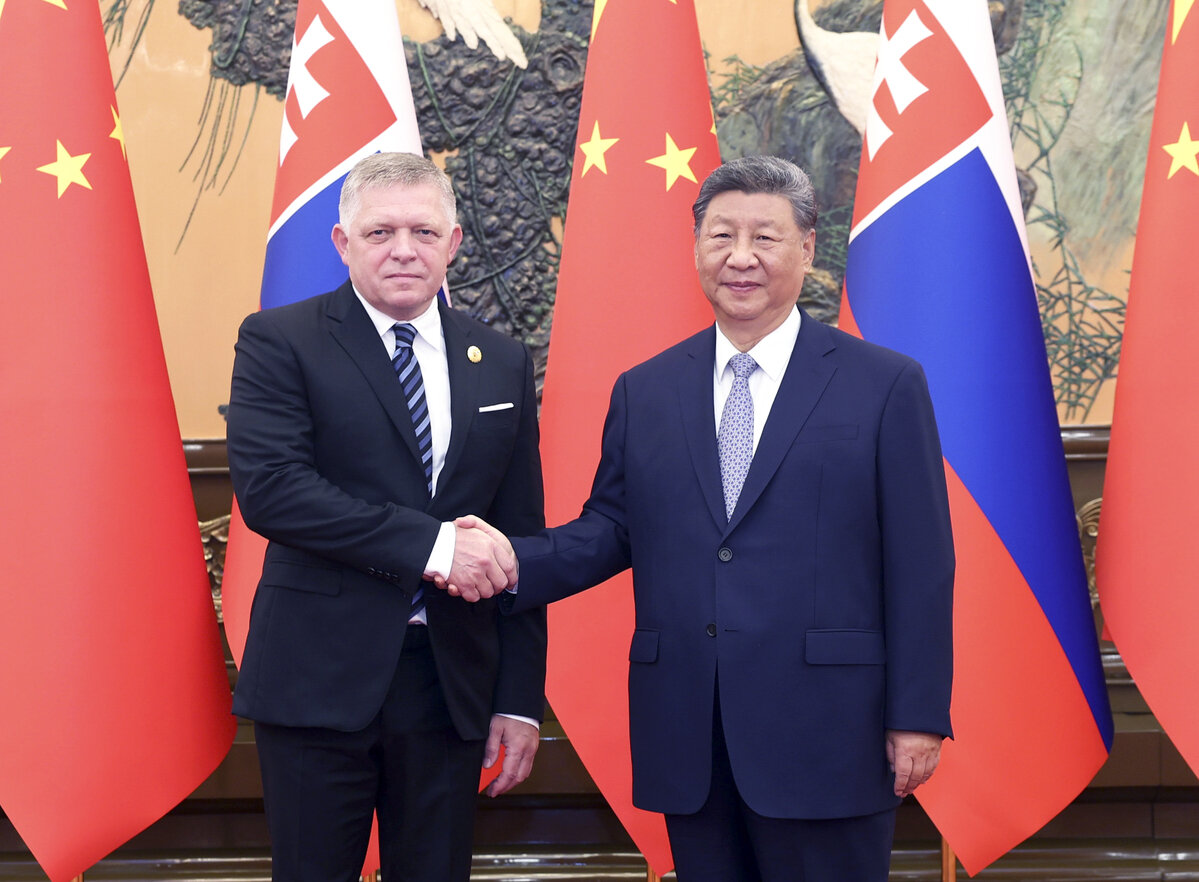Slovak PM in China: Building partnerships for a fairer global future

PRETORIA – Robert Fico has once again put Slovakia under the international spotlight. While other EU leaders stayed home, the Slovak prime minister travelled to Beijing for China’s commemoration of the 80th anniversary of victory over fascism in Asia. There, he was the only EU head of government standing alongside Xi Jinping and Vladimir Putin.
For Brussels, this was a provocation. European diplomats bristled at the images of an EU member aligning so visibly with Moscow and Beijing. The Slovak opposition went further, calling the visit “an international shame.” And yet, the Slovak public should resist the instinct to cheer the trip simply out of frustration with the EU, or to reject it outright because it breaks ranks with Brussels. Both reactions miss the real question: what do such visits mean for the people of Slovakia?
The global stage
Beijing knows how to stage history. A military parade, group photographs of leaders, and speeches wrapped in slogans such as “the world is changing” and “peace versus war.” The event sent a clear message: the West no longer monopolises the global narrative.
Xi Jinping used the occasion to praise Slovakia’s “positive role in promoting China–EU relations.” Fico responded by speaking of “accelerating economic cooperation” with China, hoping to secure investments that have so far eluded Slovakia. At the same time, he declared a desire to “normalise relations with Russia” and expand gas imports from Gazprom, a stance sharply at odds with EU policy.
This was more than symbolism. It was a performance of shifting alliances in a world where the “Global South” is asserting itself against Western dominance.
A shared history — and a missed opportunity
Slovakia is right to develop relations with countries of the Global South and the wider “global majority.” These nations, from China to Latin America, have lived through colonial domination and economic exploitation. Their histories are not distant from ours. Slovakia too has known what it means to be treated as a periphery, a territory whose resources and labour are subordinated to foreign capital.
"Slovakia is right to develop relations with countries of the Global South and the wider global majority. These nations, from China to Latin America, have lived through colonial domination and economic exploitation. Their histories are not distant from ours."After the Second World War, both the USSR and China deliberately chose non-capitalist development paths. Their socialist projects—however contradictory—were grounded in the belief that societies must be freed from imperialist dependency. That experience resonates with us. Slovakia can and should seek cooperation with countries that aspire to a more equitable, anti-colonial, and anti-imperialist world order.
But this is exactly where Fico falls short. Instead of giving his visits this deeper and more profound meaning, he reduces them to anti-EU rhetoric. Rather than framing Slovakia’s outreach as part of a liberating, anti-capitalist project, he plays the tired card of “standing up to Brussels.” In practice, this makes his trips little more than photo-ops, designed to exploit anti-EU sentiment at home and prepare himself for the next election—gestures that bring no real value to Slovak society.
The central question
This is why the real issue is not whether Fico looked presidential in Beijing or whether Brussels felt embarrassed. The real issue is whether foreign policy choices are used to build a socialising and liberating path at home.
Will new ties with China or Russia lower the cost of living for Slovaks, strengthen our health care, or fund our schools? Will they protect us from the exploitation of foreign capital, or merely replace one exploiter with another?
At present, food prices remain high, hospitals are under pressure, education is neglected, and young people continue to emigrate. No handshake with Xi Jinping or Vladimir Putin changes that.
Foreign relations only matter if they allow Slovakia to overcome its peripheral status and pursue development that is not dictated by external profit motives—Western or Eastern. That means investing in education, raising wages, and building institutions that strengthen social solidarity. In short, the task is to liberate Slovaks from the grip of capital itself, not to shift from one dependency to another.
Accountability at home
In a democracy, governments change. If Fico loses the next election what remains of this “eastern opening” if it is not tied to tangible domestic progress? Grand strategies will collapse unless they deliver real improvements in the lives of ordinary Slovaks.
That is why accountability matters. We must hold Fico not for the photo-ops in Beijing, but for whether his government uses diplomacy to secure genuine social development. And we must prepare the next generation of Slovaks to navigate global politics in a way that serves liberation rather than dependency.
Slovakia’s place in the world will not be defined by whether Fico sits closer to Brussels, Beijing, or Moscow. It will be defined by whether foreign ties are used to build a society that is freer, fairer, and less dominated by capital.
And this is the real criticism of Fico: he talks loudly about resisting Brussels, but he fails to articulate the only vision that could give these foreign ties real meaning—an anti-capitalist, liberating path that lifts Slovaks out of exploitation. Without that, his visits abroad are nothing more than electoral theatre: photo-ops for domestic consumption, empty of substance, and devoid of real value for our future.
Lucia Hubinská is a university lecturer, activist, commentator, and publicist from Slovakia who has participated in the BRICS Summer School in South Africa.
Leave a Comment